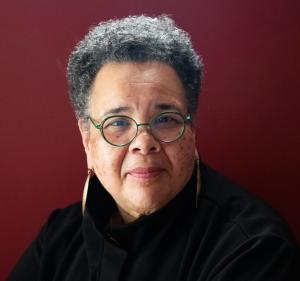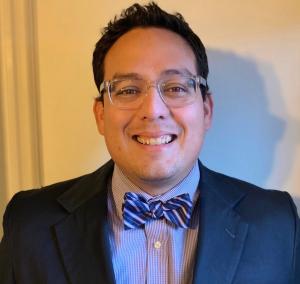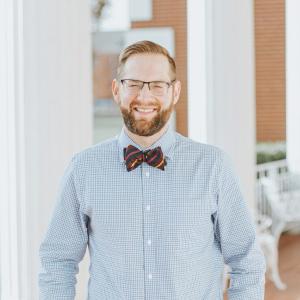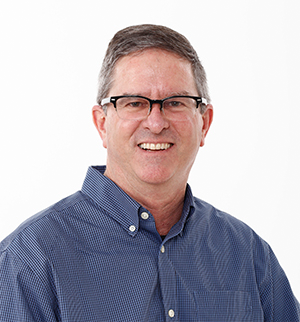Resources
Today's faculty members, like other professionals, find themselves caught between the pursuit of individual gain and the common good. Society is increasingly demanding that faculty demonstrate social responsibility toward both the institution and the larger community. This book is a practical resource for fostering and assessing faculty achievements in all aspects of their work: teaching, research, practice, and citizenship. Larry A. Braskamp and John C. Ory show that the assessment process can and must be tied to faculty development, and they explain how collegial activity and continuous improvement are important to strong performance. They identify three major elements of faculty assessment - setting expectations, collecting and organizing evidence, and using evidence - and suggest several key goals for the assessment process. The authors also show how multiple perspectives enhance the credibility of assessment, and they describe sources of evidence, including faculty members themselves, faculty colleagues, students, and experts. Specific techniques used to collect evidence are provided, as well as summaries of research on the effectiveness of each procedure. (From the Publisher)
This book discusses the first order principles (FOPs) of college teaching and their role as the easiest route to working happily and successfully in the classroom. Part 1 lists the 10 principles: (1) moderate classroom incivilities with pro-social immediacies; (2) wait actively for the fruits of one's teaching efforts; (3) begin before feeling ready; (4) work and teach in brief, regular sessions; (5) stop a lesson in a timely fashion; (6) moderate over-attachment to content and overreaction to criticism; (7) moderate negative thinking and strong emotions; (8) let others do some of the work, (9) welcome learning and change; and (10) build resilience by limiting wasted efforts. Part 1 also summarizes research showing that FOPs work. Part 2 discusses metacognitions about FOPs for teaching. This section focuses on recognizing society's real objections to efficient teaching; the key elements of efficiency; and mastering efficiency. Some sections contain references. Contains 59 references. (From the Publisher)
Classroom research has evolved considerably in the past few years. This sourcebook explores how classroom assessment techniques (CATs) are now being used to build student learning skills, and examines current research on how classroom assessment has changed both teaching and learning. It also introduces new uses for CATs—to promote effective student teamwork, help institutions answer the call for more accountability, and guide new teachers in developing their teaching philosophies. This is the 75th issue of the quarterly journal New Directions for Teaching and Learning. For more information on the series, please see the New Directions for Teaching and Learning page. (From the Publisher)

The task is impossible, yet ours to accomplish. Our students need us to shape our classrooms for a future we cannot foresee or anticipate. In the courses we design, our students need us to hone their voices, imaginations, and problem-solving abilities for a future that is unmappable yet will require their navigational skills for survival of our families, neighborhoods, and nation. The world powers are shifting before our very eyes, and we must teach to prepare our students for this change. A call for agency is not a call to act out or act up. Agency has more to do with activating the responsibilities and powers which came with faculty hire when we joined an institution with a commitment to mission. We are bound to the promise of educating – come what may.Typically, the mission of the school has to do with educating for the moment at hand, and with an eye toward the coming future. Faculty, as stewards of knowledge production, have a professional obligation to adapt, pivot, adjust so that education remains future minded – especially in a moment when the future will not look like the past. We are teaching in a moment when we do not have the luxury of thinking that adhering to established traditions will save schools or educate our people into the next fifty years. While we need those with agency to guide us into the new possibilities, the new approaches, the new sensibilities of education, too many school contexts have punished, jettisoned, or abandoned those with agency.Agency, or lack thereof, is one of the perennial themes discussed in gatherings of early career colleagues at Wabash Center. Colleagues invariably bring to the discussion their fears, misinformation, unarticulated needs, desires, and hopes. They disclose their disappointment and misgivings about institutional citizenship and the lack of ownership they feel for their own professional duties. When asked by the workshop leaders why they feel so disregarded, they say:“I assumed that my needs are just like everyone else’s. They (the administration) should know what I need without me asking.”“I don’t ask questions in meetings because I do not want to appear stupid.”“I don’t like to ask too many questions because I am new.”“I really think someone else knows the curriculum better than I do, so I leave it up to the senior scholars.”“I have decided to wait until I am – [tenured, promoted, finished with my book] – THEN I will start speaking up about the workings of the school.”“I do not want to ask for a faculty handbook because they might think I am causing trouble.”“When colleagues ask me to lunch, I say no. I don’t want the department head to think I am colluding with them.”“I say “yes” to every extra assignment. I don’t want colleagues to think I am unavailable or lazy.”“I don’t make use of the teaching center. I don’t want my colleagues to think I do not know how to teach.”“My only mentor is my dissertation advisor who retired three years ago. I do not want colleagues to think I need advice.”“I am going to pitch my idea for a new class after Dr. XXXX retires in two years.”“I do not vote in faculty meetings because I do not want colleagues to think I take sides.”“I wanted to say something, but I did not know how the colleagues would react.”These are the kinds of responses given by the fearful and the distracted. The lack of agency signals that there is a denial of authority, an abdication of responsibility, a giving away of power, a squandering of opportunity. As some of the most educated people on the planet we are asking permission to do the jobs for which we are depended upon. My fear is that now, in this crisis, we are incapable of shaping our classrooms for the unknown future — we might be, as my father would say, “a day late and a dollar short.” As educators, we are in a reckoning moment when we must take agency if our craft of teaching is to be relevant and worthwhile. Moving forward, we know that higher education will need to imagine, invigorate, and conjure up new schools as well as establish new approaches for entire systems of education. Professional timidity will sabotage these efforts. Faculty colleagues who have no agency, no forthrightness, no vision for the new, and who refuse or are unable to take authority for the job will only serve to further compromise the system and foreclose the freedom and creativity needed now and in the future. Leadership that is flexible, resilient, imaginative, and willing to convene open dialogue and struggle with challenging questions is what is needed as we press onward through the fog! Reflection QuestionsWhat are the obstacles to your own agency?How has your agency grown with the seasons of your career?What is at stake should your leadership go unvoiced?Who are your conversation partners for discussing this moment of crisis and the ways it is affecting teaching?Where are the open dialogues that address the new possibilities for the coming future?

In a previous blog, I highlighted courage as a a key factor in teaching. It ultimately pointed to a struggle for the affections of our students. I discussed the importance of winning their affection as a key component of my work as a teacher. It is a valuable step to gain credibility in the classroom. Below, I continue addressing this battle for the affections.I teach at Pentecostal Theological Seminary. Many of my Academy peers at non-Pentecostal institutions, in Wabash workshops, and in other settings have expressed their interest in Pentecostalism. It is like a hobby or curiosity due to the perceived eccentricity of Pentecostal belief and practice. I have also met many in the Academy who grew up as Pentecostals but are now a part of other religious traditions. Somehow, their experience still informs their identity and they now work in theological education even if it is through different lenses. Others hear the word “Pentecostal” and just raise their eyebrows because of the many misinformed stereotypes.Perhaps the most groundbreaking work for Pentecostals was Steven Jack Land’s Pentecostal Spirituality: A Passion for the Kingdom (1993). To this day, I understand that it is the all-time best-seller for the Centre for Pentecostal Theology. Land’s title is descriptive for Pentecostalism.[i] Land connects systematic theology and spirituality. For him, Pentecostals are a Wesleyan form of religion similar and different from other streams of Christian thought in that their theology stresses the affections. Post-Land, Pentecostals understand that theological education is about “knowing in one’s mind” (orthodoxy). It is also about “knowing how to do” (orthopraxis). Yet, education also involves feeling or aligning one’s affections or disposition the right way (orthopathos).My tradition points to the importance of winning and molding the affections of the human being.[ii] This is something that can help us as we teach. Theological education most certainly includes the mind; however, it is much more than rational assent. Theological education is concerned with the student engaging in the right practices, but that is not its end. Theological education is concerned with things that are at stake in our culture and are of utmost importance; as such we are in a struggle for the heart of our generation, for the affections. Nonetheless, the affections must also involve the mind and our practices. Too many Pentecostals love God, but they do not love God with their minds or with their practice. The three (orthodoxy, orthopraxis, and orthopathos) go hand in hand as a perichoretic philosophy of learning, if you will.My concern is with this latter orthopathic dimension in theological education. Let me clarify, Pentecostals are known for “tongues and drums.” In what I describe I am always conscious of the mind and action. However, religious or theological education must be concerned with orthopathy. This term comes from the Greek roots, ortho and pathos. Ortho refers to the “correct manner” or to a “proper way”; pathos refers to suffering, or in the literal sense, a quality that evokes pity. Theological education must not only be concerned with the right information about God or the right practice. It must also be concerned with producing the right passion, or the right affections, concerning the things of God.Let me provide an illustration. A person may not know about justice in Scripture or in a particular religious tradition. We do the difficult work of presenting students with this hard intellectual fact. Second, a student may be acquainted with the notion of social justice and may even participate and engage in activities promoting justice or the right social action. However, even in my intellectual knowledge of justice and the right practice of social justice, I must remember the underlying need to love my neighbor as myself – even when this neighbor may not think or act like me. This is a profound affective move that conditions my relationship to all human beings, even if I rationalize that they do not deserve to be treated as such. Thus, orthopathos refers to a gut check about being invested in the right way of being in the world or feeling in the world towards God, neighbor, and self – vertically, horizontally, and dispositionally.I know this is a brief essay and I may not have time to write more about this. But in my particular tradition (wesleyan-pentecostal), any writing about teaching must include these three dimensions: orthodoxy, orthopraxis, and orthopathy. As a result, theological education must include those elements that evoke the most poignant affections, such as (but not limited to) music, poetry, dance, art, and other media. People wonder what makes Pentecostals grow. It is this radical inclusion into liturgy and beyond (such as the world of the Academy) of this oft-forgotten part of our humanity – the affections. Orthopathos is a powerful composition that produces lifelong learners that are passionate about theology, education, and God. Teaching seeks to live out these vibrant vertical and horizontal relationships. Notes & Bibliography[i] There are many different types of pentecostalisms. There are charismatic Pentecostals, third wave Pentecostals, reformed Pentecostals, and anabaptist-like strains of pentecostalism. But I teach at Pentecostal Theological Seminary, a school that traces and articulates the development of its Pentecostalism to the nineteenth-century Holiness Movement (i.e. Phoebe Palmer, Charles Finney, etc.) and eventually to John Wesley (pentecostalism’s grandfather). It is known as “the Cleveland School” for its Wesleyan-Holiness-Pentecostal perspective.[ii] Jonathan Dean, A Heart Strangely Warmed: John and Charles Wesley and Their Writings (Canterbury Press, 2014).
Tat-siong Benny Liew, Ph.D. is Professor, Class of 1956 Chair in New Testament Studies at Holy Cross College. In this rich and reflective conversation, Dr. Nancy Lynne Westfield and Dr. Tat-siong Benny Liew explore the complexities of mentoring within academic and theological contexts. They discuss mentoring as a relational, communal, and intergenerational practice rather than a top-down, ego-driven model. Emphasizing listening over advice-giving, they critique hierarchical approaches and advocate for mutual, organic relationships built on trust and care. Both speakers highlight the importance of multiple mentors across one’s career, including peer and reverse mentoring, and the vital role mentoring plays in sustaining intellectual and theological traditions. The episode concludes with reflections on mentoring as a form of invisible labor and collective responsibility to nurture future scholars.

Humans, like all living things, are creatures of habit. The familiarity of my classroom spaces, whether indoor or outdoor, is profoundly comforting to me. The established structures and routines – the layout and furniture of the room (or patio), where everyone sits, the specific times we keep for prayer, discussion, board work, and listening all come together – a spatiotemporal synergy – to create an atmosphere of healthy safety that makes the gentle provocations and challenges needed for learning, growth, and even transformation possible. We can address ideas and issues in the unique space and time we have together because of its set-apart particularity. And stability, predictability, and repetition are integral ingredients for the very possibility of such work.When I take students outside for Creaturely Theology, though, such routines and structures are out the window, literally. The changes and challenges of the seasons demand adaptability. We must be ever ready with open minds, hearts, and even hands to receive whatever is offered, moment by moment.There are certainly rhythms and regularities. Throughout the semester we return to the same places again and again, often via the same trails and routes. Every time we arrive again to where we have been before, things are new. The cold browns and grays of January and February give way to rich, vibrant greens, and then whites, yellows, pinks, oranges, and blues, as herbaceous plants awaken and show off beautiful ephemeral blooms in March and April. In the cool, wet winter, we regularly encounter salamanders, small mammals, and ground-dwelling invertebrates, but as the world warms, the diversity of lives multiplies before our eyes. Flying insects appear seemingly from nowhere, and snakes, lizards, and turtles emerge from the subterranean slumber of brumation into the lengthening brightness and warmth.Chorus frogs and spring peepers announce the inevitable coming warmth before we can feel or believe it. Overwintering birds depart and spring migrants arrive, transforming the diurnal soundscape, filling each holler and hilltop with new harmonies. Even aromas shift dramatically. The moldering, earthy wetness of winter gives way to the spice and sweet sap of buds unfurling and swelling into leaves and verdant new shoots greedily pressing through previous years’ detritus, pushing aside soil and rock, to meet the sun. Later in the semester, petrichor – the scent of warm rains on drying soil – lifts our spirits, even when our hair and clothes are dampened.Every change and happening has its particular power for those with eyes to see and ears to hear, but sometimes the experiences are more personal. Some scents and sights have almost bowled me over, returning me to the sensations of my undergraduate self – now twenty years past – in this same but different place.In my last blog I mused on the importance of recognizing and learning the names of our living non-human neighbors whose ancestors have dwelt here for countless generations. It is, of course, impossible for my students and I to know, and to draw near to, all of them in just one semester. In Braiding Sweetgrass, Potawatomi botanist Robin Wall Kimmerer stresses the desperate need for indigeneity in our age of globalized placelessness.[i] We must shed our restless destructiveness to become grounded again. The health of our environs, their non-human inhabitants, and our own well-being, both physical and psychological, depends upon such attention and connection. It cannot happen completely while obtaining a Bachelor’s degree, let alone during a semester, but I can help plant its seeds, and tend its early growth, with each new cohort of creaturely theologians.The seasons and lives of this place are constantly reshaping the typical rhythms of academia and my own teaching life. I no longer feel as if I am passing through these woods and fields in unassailable ignorance, taking from them what I can. However slowly, I am becoming naturalized. The more I learn, the more palpably I know my ignorance and limitations; and yet, paradoxically, the more I feel at home. As this place and its inhabitants remake, and renew, me, I am better able to share such intimate care with my students.As one student put it at the end of the semester, “We kept coming back and getting to know the area. . . [I]n a way it became ‘our campus,’ not in the sense of ownership, but in the sense of friendship.” Notes & Bibliography[i] See Robin Wall Kimmerer, Braiding Sweetgrass: Indigenous Wisdom, Scientific Knowledge, and the Teachings of Plants (Minneapolis, MN: Milkweed Editions, 2013), 205–15.
Ryan Bonfiglio, PhD. is Associate Professor in the Practice of Old Testament at Candler School of Theology and Executive Director of The Candler Foundry.

I hinted in my previous post that maybe I should do an illustrated version of my in-process book, Zen and the Artful Buddhist: Asperger’s, Art, and Academia. I have illustrated a few pages, but it’s taking far longer than I imagined it would. This book idea has been percolating for a few years. Some days I want it to be published by an academic press, but now that it’s morphed into an illustrated book, I’m not so sure about an academic press. The book meanders. As does my mind. All the time. Illustrating the book feels right: it’s creative, innovative, and will illustrate (literally) my evolving understanding of how I’ve been impacted by learning late in life that I have Asperger Syndrome (now, a part of ASD, Autism Spectrum Disorder). One need not have Asperger’s to reflect on one’s life, to be sure. Yet this is the lens through which I see more clearly my years as a professor.Before starting to illustrate the book, I was working on and off on another large (31x51 inches) painting. I only work on the painting an hour or so at a time, since it requires intense concentration and it is physically demanding. It requires standing, and the more I paint, the further I have to reach to complete rows higher on the paper, creating strain on my back, eyes, and wrist, to name a few. This current painting is precisely what I have been working on at various points for the past several years, namely short, parallel lines in multiple rows. While working on the piece, I thought a lot about my teaching style.So far, my illustrated book project shows various connections between my art, Asperger’s, Buddhism, and academia – all large topics themselves. I’m not an expert on Asperger’s, but what I’ve learned provides insight into my art-making. And insofar as any artwork contains the “fingerprints” of the artist, my pattern-heavy, highly-repetitive paintings also connect to themes I recognize in how I taught my courses. Of course, I could add much more nuance, but here is a short list of Asperger-related traits that run through my art and teaching:Detail: I always thought it was normal to focus on details, but I see now that I was having students look at the trees so much that we sometimes would miss the forest;Precision: accurate pronunciation of foreign terms (e.g., Sanskrit);Repetition: similar assignments, just different material;Nuance: overall picture shows nuances, but one still needs to look intently at the details first;Plans: agonizing over planning the syllabus every semester.My latest large painting contains roughly thirty-one thousand parallel lines, each one fitted within a half inch band of parallel lines. Like my teaching, it contains lots of details, all of which are necessary for building the overall painting. Looking back on my teaching, I now wonder what sort of balance I struck between looking at the individual lines/trees and making clear the connections that were being constructed throughout the course/forest. While illustrating my book project, I see similar challenges emerging. My next (illustrated) post will delve into more nuances about my progress.
Donald Quist is Assistant of English at the University of Missouri and Educational Design Manager at the Wabash Center. He is author of many articles, essays, and books including the literary tryptic To Those Bounded, For Other Ghosts, and Harbors.